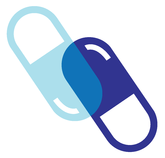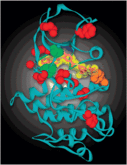Generics/Research
Repurposing thioguanine
Repurposing and re-registering old generics is a cost-effective and time-efficient way of finding new purposes for existing drugs. One such ‘old generic’ that has been repurposed and re-registered is thioguanine [1].
Repurposing and re-registering old generics
Finding new indications for existing drugs is better known as drug rediscovery, drug repurposing or drug repositioning. It is cost-effective and time-efficient way of finding a new purpose for old drugs. However, when it comes to the rediscovery of old generics, the lack of a formal regulatory pathway for such drugs and a lack of economic interest by pharmaceutical companies, makes it a challenging pursuit [1].
Barriers to generics substitution in the Middle East
Although most pharmacists in Lebanon are in favour of generic drug substitution, fewer than half have actually implemented the policy, according to a study carried out by researchers from the American University of Beirut [1].
Generic drug substitution in Lebanon
A new study reports on Lebanon’s recently introduced generic drug substitution and unified prescription policy, a country which spends among the most on pharmaceuticals in the Middle East. The study explored attitudes of community pharmacists towards the idea of the policy and its current implementation [1].
Generics prices increase when competition decreases
A US-based retrospective cohort study has found that generics prices increase when competition is low or non-existent [1].
Follow-up study finds generic tacrolimus safe for kidney transplant patients
Researchers from Portugal, who carried out a long-term follow-up study, have found that switching stable kidney transplant patients to generic tacrolimus is safe [1].
Generics in the pipeline for 2017 in the US
Since the Hatch-Waxman Act was passed in 1984, the approval process for generics has been simplified. The law created an abbreviated approval pathway for generics making it easier for generics to enter the market and expanding access to important — often life-saving — drugs.
Oncology drug pricing – the case of generic imatinib
Authors Christopher Chen and Aaron Kesselheim review how various market strategies slowed the entry of generics of leukaemia treatment Gleevec (imatinib) in the US [1].
Generic substitution of antiretroviral drugs in Ireland: healthcare provider views
A survey conducted in Ireland shows that most healthcare providers consider the generic substitution of antiretroviral drugs acceptable, although concerns remain about dosing frequency [1].
Reference pricing for generics in Switzerland
In 2016, the Swiss Federal Office for Health (FOH) planned to modify the reference pricing scheme for generics. Rather than using a copayment of 10 per cent on low-cost and a 20 per cent copayment on high-cost generics, it was to set the benchmark at the 25th percentile of the price distribution and make patients pay out of pocket for the full excess of price over this benchmark in addition to a basic 10 per cent copayment. This paper, based on an expert report commissioned by Intergenerika, the Swiss association of manufacturers and importers of generics and biosimilars, purports to answer the question of whether this modification is apt to improve the performance of the Swiss healthcare system [1].













